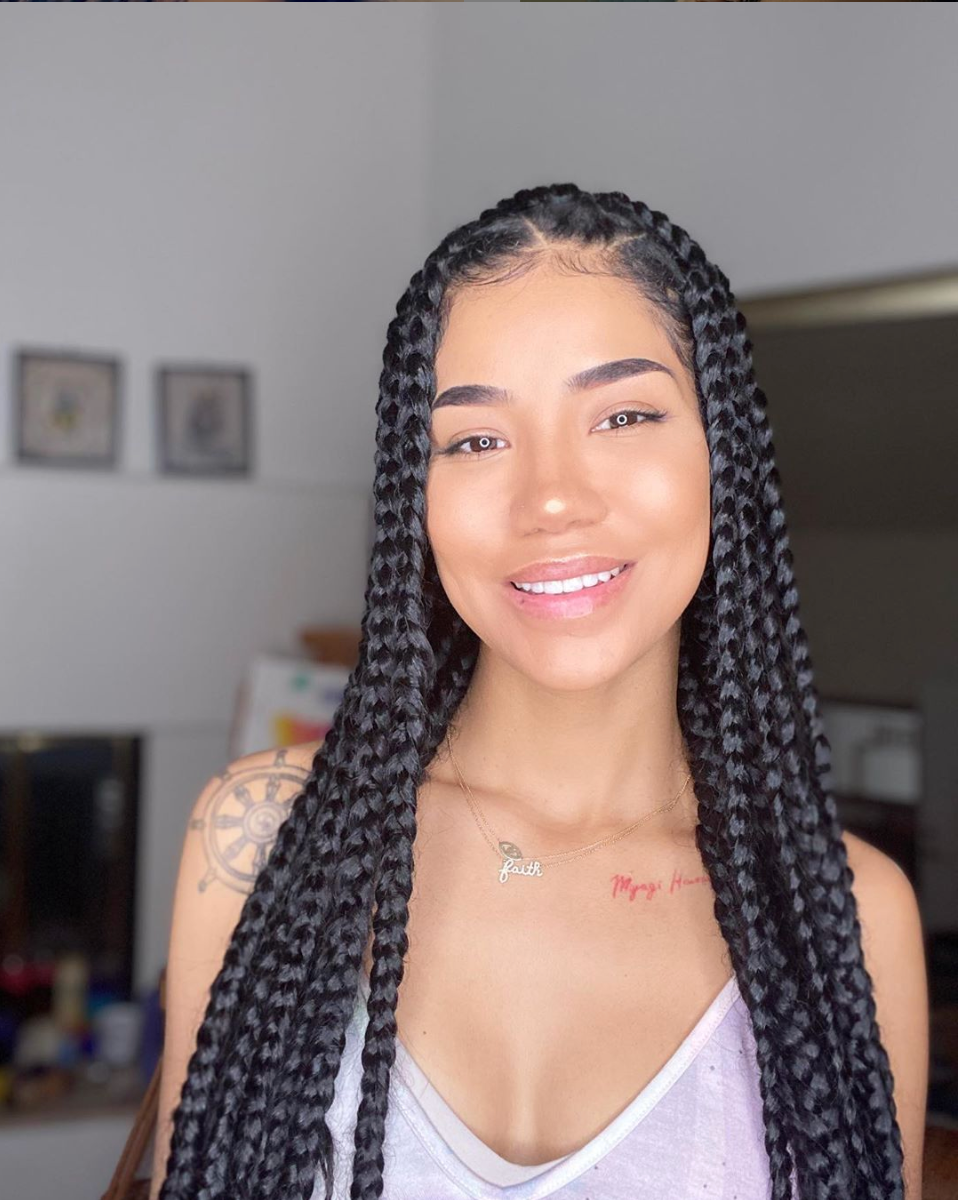
Social media can be a gift and a curse for celebrities. At its best, it’s a quick and effective way to release their art and connect with fans. At its worst, it’s a slippery slope where responses and statements can get miscontrued. Such was the case when singer Jhené Aiko was questioned about her race, which then branched off into a conversation about her use of the N-word.
One Twitter user reached out to Aiko asking about her ethnicity, to which the “Triggered” singer replied, “Whispers, cat hair, Slauson asphalt and sand from Venice beach.” The humorous and indirect response confused Aiko’s followers. But the confusion didn’t end there. In a follow-up tweet, she expounded, saying: “I am less Black than someone half-Black, but also less white than someone half white… and Asian is the least thing I am. lol. So at this point, it’s whatever they want me to be.”
After the Twitter exchange made it’s way to The Shade Room, Aiko commented on the post to clarify exactly what she meant. “Actually wait! I would like to say one more thing that hopefully simplifies this statement,” she said. “The discussion stemmed from the use of the n-word in my music, in the past. And I let it be known I haven’t [said it] in a while and chose not to use it anymore moving forward out of respect and consideration to my ancestors and the individuals who feel uncomfortable when I say it.”
She then gave a breakdown of her ethnicity, saying “I have a Japanese grandfather and a Creole/Dominican grandmother on my mother’s side… and both of my father’s parents are Black and white. My DNA results came in 25% asian, 33% African and 34% European,” she said. “So that is what I was referencing in the tweet. Also, those DNA sites update and change from time to time so who actually knows. Ok, now I’m done explaining, promise I am human and I see you all as family regardless of how u view me.”

Aiko is no stranger to opening up about her multiracial background and how it has affected her life’s experiences. In a conversation with REVOLT, said, “When I started going on auditions, they would put me for roles [as] the Spanish girl, or the Japanese girl or the Black girl.” She also revealed that between the ages of 12 and 13, agents would advise her mom to “play up one or the other.”
“[They told my mom] you should straighten her hair so she could look more Asian or you should keep her hair natural and curly, and put a little bronzer on her so she [will] look more black,” Aiko recalls.
We’re glad Jhene’s exchange is opening up a more expansive dialogue on the complicated subjects of racial identity. What are your thoughts on the conversation?